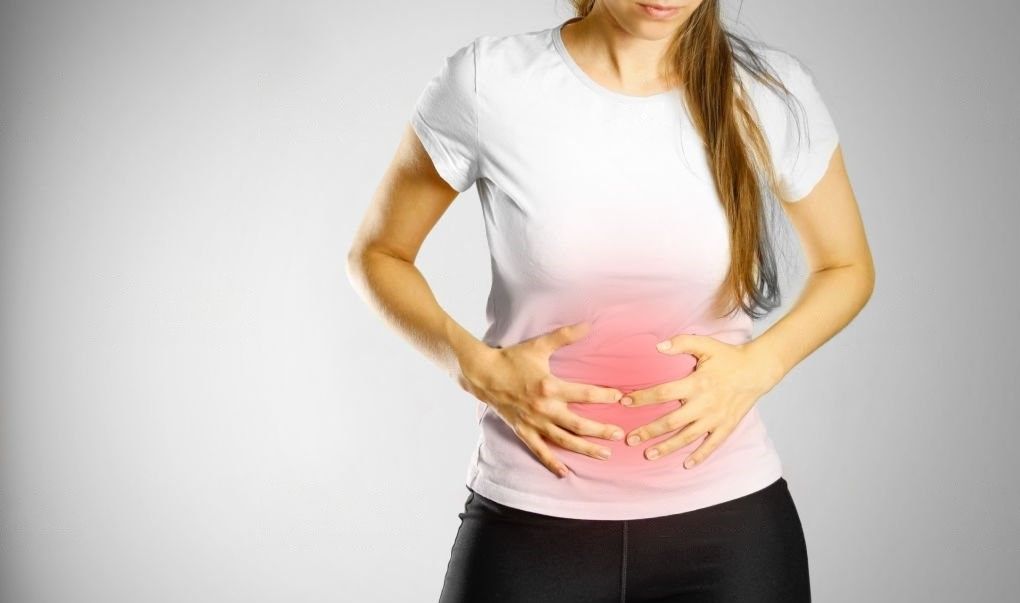Endometriosis and Digestive Health: How to Manage GI Symptoms
Women with endometriosis can effectively manage GI symptoms and improve digestive health by maintaining a balanced lifestyle.

Endometriosis is a chronic condition that affects millions of women worldwide. It occurs when tissue similar to the lining of the uterus grows outside the uterus, leading to various symptoms, including pelvic pain and infertility. Many women with endometriosis also experience gastrointestinal (GI) symptoms, such as bloating, constipation, diarrhea, and abdominal pain. Managing these GI symptoms is essential for improving the quality of life for women with endometriosis. In this article, we will explore the scientific research surrounding endometriosis and its impact on digestive health, discuss the underlying causes of GI symptoms, and provide practical tips for managing and alleviating these symptoms.
The Connection Between Endometriosis and Digestive Health
- Inflammatory Response: Endometriosis is associated with chronic inflammation in the pelvic area. This inflammation can affect the nearby organs, including the digestive system, leading to GI symptoms such as bloating and abdominal pain.
- Adhesions and Scar Tissue: Endometriosis can cause adhesions and scar tissue formation in the abdomen and pelvis. These adhesions can lead to bowel disturbances, including constipation, diarrhea, and intestinal blockages, resulting in digestive discomfort.
- Hormonal Imbalances: Hormonal fluctuations associated with endometriosis, particularly elevated estrogen levels, can affect bowel function and contribute to GI symptoms.
Strategies for Managing GI Symptoms in Endometriosis
- Balanced Diet:
- High-fiber foods: Include fiber-rich foods such as fruits, vegetables, whole grains, and legumes in your diet. Fiber promotes regular bowel movements and helps alleviate constipation.
- Anti-inflammatory foods: Incorporate foods rich in antioxidants and anti-inflammatory properties, such as berries, leafy greens, fatty fish, and turmeric. These foods may help reduce inflammation and alleviate GI symptoms.
- Avoid trigger foods: Some women with endometriosis find that certain foods worsen their GI symptoms. Common triggers include caffeine, alcohol, spicy foods, and high-fat or processed foods. Pay attention to your body's response and limit or avoid these trigger foods as necessary.
2. Adequate Hydration:
- Drink plenty of water: Drink water throughout the day to maintain proper hydration and support digestive function. Staying hydrated can help prevent constipation and promote regular bowel movements.
3. Regular Physical Activity:
- Engage in regular exercise: To improve overall bowel function and promote healthy digestion. Activities like walking, yoga, or low-impact exercises can help alleviate constipation and reduce abdominal discomfort.
4. Stress Management:
- Chronic stress can exacerbate GI symptoms: Incorporate stress management techniques such as meditation, deep breathing exercises, or engaging in hobbies and activities that help you relax and unwind.
5. Medication and Treatment Options:
- Nonsteroidal anti-inflammatory drugs (NSAIDs): NSAIDs may help alleviate pain and reduce inflammation associated with endometriosis, which can indirectly improve GI symptoms.
- Hormonal therapy: Certain hormonal treatments, such as oral contraceptives or gonadotropin-releasing hormone (GnRH) agonists, can help regulate hormone levels and potentially alleviate GI symptoms in some women.
SUMMARY
Gastrointestinal symptoms are common in women with endometriosis due to factors such as inflammation, adhesions, and hormonal imbalances. By adopting a balanced diet, staying hydrated, engaging in regular physical activity, managing stress, and exploring medication or treatment options, women with endometriosis can effectively manage their GI symptoms and improve their overall digestive health. It is important to consult with a healthcare professional or specialist for personalized advice and guidance tailored to individual needs and circumstances.
Jayti Shah is a Clinical Nutritionist with a master's degree in Clinical Nutrition and Dietetics. She is a member of the Indian Dietetic Association (IDA). Over the last 9 years, she has helped 400 clients in their clinical and weight loss journeys. She works with SocialBoat as a nutrition consultant.
At SocialBoat, we offer custom diet plans and guided workouts to help you achieve your goals in a 360-degree approach. Our gamified experience ensures that you don’t find workouts boring and we reward you for being consistent with your efforts.

REFERENCES
- D'Alterio MN, Cignini P, Fichera M, et al. Inflammatory bowel disease and endometriosis: New insights from a case-control study. Biomed Res Int. 2019;2019:1243419.
- Viganò P, Parazzini F, Somigliana E, et al. Endometriosis: Epidemiology and aetiological factors. Best Pract Res Clin Obstet Gynaecol. 2004;18(2):177-200.
- Bulletti C, Coccia ME, Battistoni S, Borini A. Endometriosis and infertility. J Assist Reprod Genet. 2010;27(8):441-447.
- Porpora MG, Koninckx PR, Piazze J, et al. Correlation between endometriosis and pelvic pain. J Am Assoc Gynecol Laparosc. 1999;6(4):429-434.
- Hudelist G, Fritzer N, Thomas A, et al. Diagnostic delay for endometriosis in Austria and Germany: Causes and possible consequences. Hum Reprod. 2012;27(12):3412-3416.
